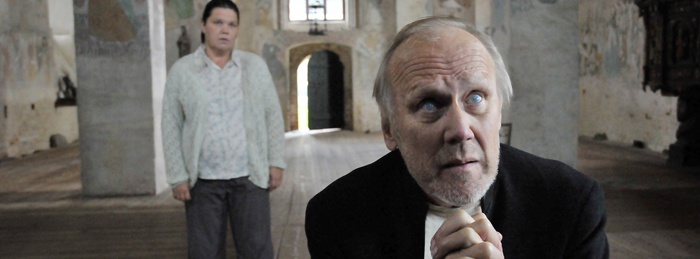Review: Letters to Father Jacob
Klaus Härö’s Letters to Father Jacob begs to be praised for its loveliness: the cinematography is exquisite – with its painterly compositions of the remote Finnish countryside, the beautifully lit interiors of the film’s leaky, dilapidated house – and the Jussi-winning performances from Kaarina Hazard and Heikki Nousiainen are touching in their unlikely relationship. But […]

Klaus Härö’s Letters to Father Jacob begs to be praised for its loveliness: the cinematography is exquisite – with its painterly compositions of the remote Finnish countryside, the beautifully lit interiors of the film’s leaky, dilapidated house – and the Jussi-winning performances from Kaarina Hazard and Heikki Nousiainen are touching in their unlikely relationship. But despite all this, there’s a transparency to what it’s doing that feels a little too calculated to completely resonate.
Both Hazard and Nousiainen are well-cast but they emerge more walking signposts for those heavy Bergman-esque themes of faith and redemption rather than fully realised characters we can embrace. Hazard’s stern-faced, thickset Leila Sten, pardoned after serving 12 years of a life sentence, grimly carries the burden of her past, the details of which aren’t revealed until a mawkishly contrived ending, while Father Jacob, the elderly blind priest she goes to work for reading and replying letters, is faced with the possibility that his purpose in life is coming to an end.
Scored to generically mournful plinky-piano, Letters to Father Jacob works best in low-key moments focusing on thawing Sten’s icy personality via Jacob’s innate warmth and openness. But when it tries to milk too much humour from the premise – Sten’s strong-arming of the postie who thinks she’s up to no good uncomfortably verges on slapstick – it’s uncharacteristically jarring. The brief 74-minute running time should, in theory, serve a stripped-down two-hander such as this, but unfortunately the film doesn’t leave an impression of narrative economy, more of deflating, inconsequential wispiness.





















